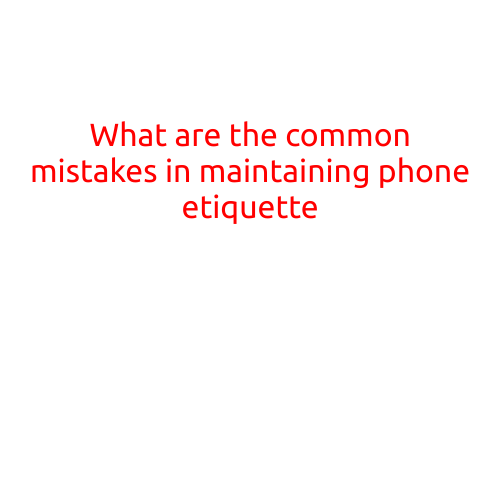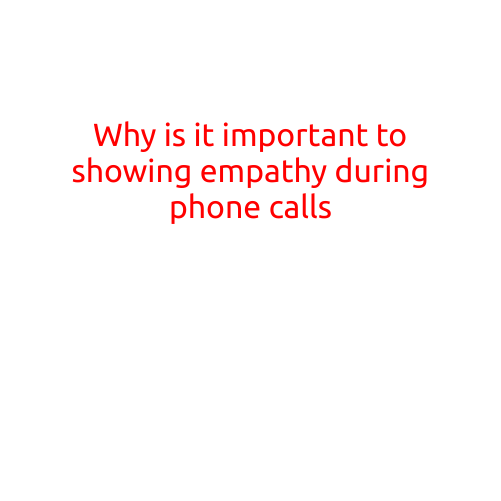
What Skills are Needed for Being Persuasive on the Phone?
In today’s fast-paced business world, effective communication is crucial for success. Among the various forms of communication, phone calls play a vital role in building relationships, closing deals, and resolving issues. Being persuasive on the phone requires a unique blend of skills that can differentiate you from others. In this article, we’ll explore the key skills you need to be persuasive on the phone and some valuable tips to help you develop them.
1. Clarity and Concision
Before you start a phone call, it’s essential to know what you want to achieve and what key points you need to convey. Practice articulating your message clearly and concisely. Avoid using jargon or technical terms that may confuse the listener. Instead, focus on using simple, straightforward language that gets your point across.
2. Active Listening
Active listening is a critical skill for effective phone communication. Pay attention to what the other person is saying, and show that you’re engaged by nodding, summarizing, and asking clarifying questions. This not only helps you understand their perspective but also demonstrates that you value their thoughts and opinions.
3. Empathy and Emotional Intelligence
Phone conversations can be intimidating, especially when dealing with customers or clients who may be frustrated or upset. Developing empathy and emotional intelligence can help you navigate these situations smoothly. Practice recognizing and understanding the emotions of others, and use this knowledge to build rapport and trust.
4. Confidence and Assertiveness
Confidence and assertiveness are essential for being persuasive on the phone. Speak clearly and firmly, and avoid apologetic or hesitant language. Instead, focus on using assertive phrases that demonstrate your authority and expertise.
5. Problem-Solving and Creative Thinking
Phone calls often involve resolving issues or addressing concerns. Develop your problem-solving and creative thinking skills by brainstorming potential solutions and offering alternatives. This helps to build trust and demonstrates your commitment to finding a resolution.
6. Flexibility and Adaptability
Phone conversations can take unexpected turns, and being adaptable is crucial for staying on track. Be prepared to pivot your approach or adjust your message based on the listener’s response. This shows that you’re willing to listen and adapt to their needs.
7. Positivity and Enthusiasm
A positive and enthusiastic tone can go a long way in making a phone call more persuasive. Avoid negativity, sarcasm, or apathy, and instead focus on using uplifting language that leaves a lasting impression.
8. Follow-Through and Follow-Up
Finally, being persuasive on the phone isn’t just about the call itself, but also about following up and following through on commitments. Set clear expectations, offer solutions, and ensure that you deliver on your promises.
Additional Tips to Improve Your Persuasive Phone Skills
- Practice using positive language and avoiding negative words.
- Use pauses and silence to let the listener absorb what you’re saying.
- Vary your tone, pitch, and volume to keep the listener engaged.
- End the call with a clear summary of the agreements or next steps.
- Debrief after the call to reflect on what worked well and what didn’t.
In conclusion, being persuasive on the phone requires a unique combination of skills that can be developed with practice, patience, and persistence. By focusing on clarity, active listening, empathy, confidence, problem-solving, adaptability, positivity, and follow-through, you can become more effective and persuasive in your phone conversations. Remember to practice regularly, stay calm under pressure, and always put the needs of the listener first. With these skills and attitudes, you’ll be well on your way to becoming a phone persuasion expert.





